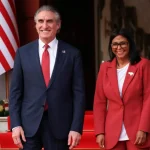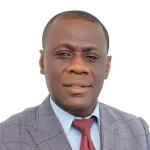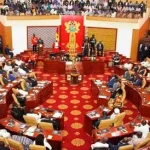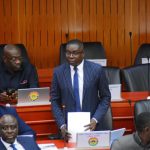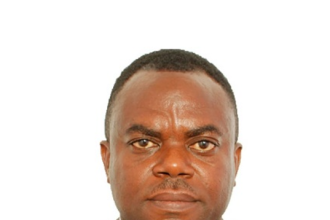How different is the loss of our Deposits to Banks and Assets Management Firms different from Armed Robbery?
Fundamental to every democracy is the rule of law. To put it simply, the submission of the entire nation to rules and laws is paramount to any working democracy. While it’s obvious that democracy depends on several interdependent and interrelated complex elements of society to serve its purpose, the removal of the rule of law spells disastrous feet for every democracy.
The preferences and opinions of the average Ghanaian appear to have a near almost-zero impact on the decisions taken by the government and mandated state institutions.
In Ghana, successive governments have made it their trademark to default on their payment schedules. Contractors are not paid on time. Health and many other service providers to the state and its parastatals are not paid on time either. Government subvention to public institutions is not released on time.
Regulatory efforts and responsibility of mandated state institutions are not timely. In all these, the “ordinary man” is the one that stands to lose. When the State comes defaulting, democracy looks like a fraud.
Let me walk you through my experience of almost one hundred thousand Ghana cedis locked up with an authorized asset management firm known as CDH. I have for the past five years saved little by little in a very painful practice of suspending any luxuries I have been used to. Even when a Banker friend advised me to keep my money in dollars, I refused due to the impact such a practice will have on our already fluctuating currency.
My request to de-invest from CDH dates back eight months before the firm’s licence was withdrawn. Unfortunately, CDH knowing very well that they are in an advantageous position to better manage their collapse, ignored my requests with impunity and funny administrative antics.
While I am very worried about my small investment, I can’t imagine how senior citizens on retirement are coping with this scary situation. But the directors of CDH, like many such companies, are walking up the street free men and women. Actually, I think they have planned their collapse properly with the help of the Bank of Ghana and the SEC.
How could a firm with severe liquidity challenges for about three years keep receiving customer deposits until the revocation of their authorization weeks ago? And when the Finance Minister addresses parliament saying that confidence in the financial sector is rising and the Governor of the Bank of Ghana organizes a press conference to say same, then I ask again, “Isn’t our democracy a fraud?”
All of these are disturbing to me but a more fearful thought that comes back to me over and over again is the deafening silence about the ills of the state. Why is everyone quiet? Where are the statesmen? Where is the opposition? Where are the researchers and academics? Where are the victims? Where are the vociferous social commentators? Where is everyone? This silence is thunderous but I know why it is so. When the state comes robbing, everyone shuts up because they don’t know where to immediately turn to.
The Akufo Addo government promised sternly to retrieve, without fear or favour, any state money stolen. In the same vein, monies that individuals have lost to Banks and investment firms that are statutorily regulated ought to be paid back to these individuals to the last pesewa. When no one takes responsibility for lost investments of the ordinary people, like the way the Ghanaian crisis has so far evolved, then my refrain becomes necessary again, “Isn’t our democracy a fraud”?
As citizens, we could attempt in many ways to retrieve our monies from these individual owners. We know them and we see them each day. We know who the Board members are and we know who the regulator is. But interestingly, all of these people form part a syndicate that has robbed us of our meagre saving and retirement benefits. But I can assure you that any attempt to recover our monies ourselves will lead to violence and chaos.
This led me to think that for democracy to work peacefully, the ordinary citizen must almost and always be cheated, mistreated, disregarded and sometimes abused. If democracy is the rule of the elite and avenue for them to protect each other and the employment state power to rob and allow ordinary citizens to be robbed then our country is a fraud.
And let me confess that at the beginning of the banking sector crisis, I was of the view that greedy folks who invested in Ponzi schemes should know the associated risk with such investments. It turns out that actually, the entire banking and investment sector in Ghana is a Ponzi scheme.
The only difference between the treasury bills repayment and other fixed deposits is that successive governments seek bigger loans to pay up their debts. That is why treasury bills aren’t any different. They are equally unsustainable and a decent fraud.
I implore you to compare the cost of borrowing from Banks (interest rate) and how much they pay us for keeping our monies even as fixed deposits. The around fifteen per cent difference is inexplicable for a country undergoing financial reforms.
Therefore, I have got no answers on why such differences exist. Rather I think our country is gradually turning to professional fraud with astute lawyers, academics and economists whose pre-occupation isn’t the ordinary people but government appointments. As a result, they will use their skills and knowledge in the defence of the establishment and the elite. But I assure them folks that such an enterprise isn’t sustainable.
Although it is reassuring that elections aren’t far away for us to tell the government, “ye dzi kom ne tu Mahama”, the heartbreaking reality is that these governments are not different. We faced with the sad reality of having to recycle the same old mafias.
Dr. Phil. Michael Yao Wodui Serwornoo
Department of Communication Studies
University of Cape Coast, Cape Coast
Michael.serwornoo@ucc.edu.gh



